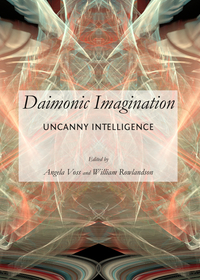The SPR’s 38th International Annual conference will be held at Vanbrugh College, at the University of York between Friday 5 and Sunday 7 September 2014. University of York is on the edge of the city centre and has very easy links to transport and all the attractions of this historic city, so we hope you will enjoy the location. As always, our full conference programme will address a broad range of topics, covering both spontaneous cases and laboratory research. In addition to the talks, conferences are a marvellous opportunity to network and share views, and there will be time to socialise over lunch and the regular coffee breaks, not to mention during the President’s drinks reception on Friday evening and Saturday’s conference banquet. Speakers will come from all over the UK, as well as from Europe and around the world, making it truly an international event. Those who attend, whether this is their first conference or their thirty-eight, can be sure of having both an informative and a very enjoyable time. We look forward to seeing you in York!
The Tao of Natural Cycles
SPR LECTURE – TERENCE PALMER – THE SCIENCE OF SPIRIT POSSESSION
Campden Hill Road
Kensington
London
W8 7RX
United Kingdom
Spirit Release Therapy, as a clinical alternative to religious exorcism and traditional shamanistic practice is largely unknown by mainstream medical practice and psychiatry. This is due to several interrelated factors. Primarily, materialistic science does not recognise any concept of a spirit world and doctors are therefore not yet trained in SRT principles and techniques. SRT sits uncomfortably between the disbelief of a materialist secular society and the subjective experience of spirit possession: whether that experience is a symptom of psychosis, symbolic representation, socio-cultural expectation or a veridical manifestation. In contrast to the monism of mechanistic science, every culture and religious belief system throughout human history has its traditional beliefs of spirit possession in some form or another with corresponding rituals for the release or exorcism of spirit entities. It is common knowledge that Christianity has its angels, devils and demons (although the majority of modern so-called Christians probably don’t believe they really exist). Islam has its Jinns and the Hindus have a variety of evil spirits.
The conflict between the epistemologies of modern science and religion lies in the conceptual differences in perception that are arrived at through empirical data and radical empirical experience. In short, it is a difference between what we believe to be true and what we know to be true.
Society for Psychical Research
A call for an open, informed study of all aspects of consciousness
- Department of Psychology, Lund University, Lund, Sweden
Science thrives when there is an open, informed discussion of all evidence, and recognition that scientific knowledge is provisional and subject to revision. This attitude is in stark contrast with reaching conclusions based solely on a previous set of beliefs or on the assertions of authority figures. Indeed, the search for knowledge wherever it may lead inspired a group of notable scientists and philosophers to found in 1882 the Society for Psychical Research in London. Its purpose was “to investigate that large body of debatable phenomena… without prejudice or prepossession of any kind, and in the same spirit of exact and unimpassioned inquiry which has enabled Science to solve so many problems.” Some of the areas in consciousness they investigated such as psychological dissociation, hypnosis, and preconscious cognition are now well integrated into mainstream science. That has not been the case with research on phenomena such as purported telepathy or precognition, which some scientists (a clear minority according to the surveys conducted http://en.wikademia.org/Surveys_of_academic_opinion_regarding_parapsychology) dis-miss a priori as pseudoscience or illegitimate. Contrary to the negative impression given by some critics, we would like to stress the following:
Action on mental health could help save London up to £26 billion a year
Scientific and Medical Network Annual Gathering 2014
Consciousness and the Experience of Time
MYSTICS AND SCIENTISTS
4 April 2014 – 6 April 2014
Venue: University of Warwick
The Mystics and Scientists conferences have been held every year since 1978, and are dedicated to forging a creative understanding of the complementary roles of scientific and mystical approaches to reality. The conferences always provide a highly engaging and creative opportunity to come together with like-minded people in a spirit of exploration and dialogue. This year we are looking at various aspects of our conscious experience of time, drawing on physics, neuroscience, philosophy, phenomenology, psychology and parapsychology. Bernard Carr, Natalie Depraz and Barbara Magnani have different approaches to the relationship between physical and psychological time, while Jacob Needleman considers the spiritual mystery of time in relation to the practical problem of time. David Luke asks if we can in some sense transcend time in precognition. James d’Angelo and David Lorimer offer an experience of music, rhythm, movement and dance. We greatly look forward to your participation.
ACISTE 2013 2nd Annual Conference
Therapeutic Issues of Spiritually Transformative Experiences
About the Conference
ACISTE provides education and certificate training for mental health professionals, pastoral counselors, spiritual counselors and other professionals who wish to increase their competency and develop their expertise in working with clients who may have psychological, spiritual or mental health challenges related to their spiritually transformative experiences (STEs). STEs may include, but are not limited to, near-death or similar experiences, spiritual emergencies,out-of-body, kundalini, after-death communications and anomalous, paranormal or exceptional human experiences, etc. The conference brings together top researchers, experiencers and practicing professionals to present their expertise and insight into in this growing field of specialization and awareness.
Audience:
- Psychologists
- Psychiatrists
- Psychotherapists
- Clinical Social Workers
- Marriage and Family Therapists
- Professional Counselors
- Addiction Counselors
- Pastoral Counselors
- Spiritual Directors
- Spiritual Life Coaches
- Psychiatric Nurses
- Psychological Assistants
For a complete conference schedule, click here.
4th British Congress on Medicine and Spirituality
Daimonic Imagination: Uncanny Intelligence
My contribution is Chapter Eight.
Editor: Angela Voss and William Rowlandson
Date Of Publication: Jun 2013
Isbn13: 978-1-4438-4726-1
Isbn: 1-4438-4726-7
 From the artistic genius to the tarot reader, a sense of communication with another order of reality is commonly affirmed; this ‘other’ may be termed god, angel, spirit, muse, daimon or alien, or it may be seen as an aspect of the human imagination or the ‘unconscious’ in a psychological sense. This volume of essays celebrates the daimonic presence in a diversity of manifestations, presenting new insights into inspired creativity and human beings’ relationship with mysterious and numinous dimensions of reality. In art and literature, many visual and poetic forms have been given to the daimonic intelligence, and in the realm of new age practices, encounters with spirit beings are facilitated through an increasing variety of methods including shamanism, hypnotherapy, mediumship and psychedelics. The contributors to this book are not concerned with ‘proving’ or ‘disproving’ the existence of such beings. Rather, they paint a broad canvas with many colours, evoking the daimon through the perspectives of history, literature, encounter and performance, and showing how it informs, and has always informed, human experience.
From the artistic genius to the tarot reader, a sense of communication with another order of reality is commonly affirmed; this ‘other’ may be termed god, angel, spirit, muse, daimon or alien, or it may be seen as an aspect of the human imagination or the ‘unconscious’ in a psychological sense. This volume of essays celebrates the daimonic presence in a diversity of manifestations, presenting new insights into inspired creativity and human beings’ relationship with mysterious and numinous dimensions of reality. In art and literature, many visual and poetic forms have been given to the daimonic intelligence, and in the realm of new age practices, encounters with spirit beings are facilitated through an increasing variety of methods including shamanism, hypnotherapy, mediumship and psychedelics. The contributors to this book are not concerned with ‘proving’ or ‘disproving’ the existence of such beings. Rather, they paint a broad canvas with many colours, evoking the daimon through the perspectives of history, literature, encounter and performance, and showing how it informs, and has always informed, human experience.
William Rowlandson is Senior Lecturer in Hispanic Studies at the University of Kent, and former co-director, with Angela Voss, of the Centre for the Study of Myth at the University of Kent. He has recently completed a book entitled Borges, Swedenborg and Mysticism, which examines the relationship between Borges’ own recorded mystical experiences and his appraisal of Swedenborg and other mystics. William’s work on Cuban poet and novelist José Lezama Lima concentrated on Lezama’s equation of poetry and the numinous. His published articles concern various areas of Latin American studies, including the history of Guantánamo Bay and Gitmo detention centre, rendition, torture, Cuba during the War on Terror. He has also published analyses of Borges, Lezama Lima, Cabrera Infante and Rulfo.
Angela Voss was a Lecturer for ten years in the Theology and Religious Studies section at the University of Kent, teaching on the MA in Mysticism and Religious Experience, and directing an MA programme in the Cultural Study of Cosmology and Divination. From January 2014, she will be teaching on a new MA at Canterbury Christ Church University: Myth, Cosmology and the Sacred. Angela is an honorary Lecturer for the MA in the Study of Western Esotericism at the University of Exeter, a tutor in Community Arts and Education at Canterbury Christ Church University, and a practising astrologer and tarot reader. Her research interests centre on the Western esoteric traditions and the symbolic imagination, and she has published extensively on the astrological music therapy of the Renaissance magus Marsilio Ficino.
Price Uk Gbp: 54.99
Price Us Usd: 82.99
Sample pdf (including Table of Contents)



 Etzel Cardeña
Etzel Cardeña



